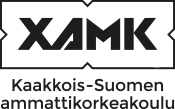Supplier relationship management (5 cr)
Code: IB00CP38-3004
General information
Enrollment
15.08.2020 - 04.09.2020
Timing
07.09.2020 - 31.12.2020
Number of ECTS credits allocated
5 op
Virtual portion
1 op
RDI portion
2 op
Mode of delivery
80 % Contact teaching, 20 % Distance learning
Campus
Kouvola Campus
Teaching languages
- English
Degree programmes
- Degree Programme in Digital International Business
Teachers
- Jagat Kunwar
Teacher in charge
Jagat Kunwar
Groups
-
IBKV19SP1Digital international business, International marketing
-
IBKV19SP2Digital international business, Global supply chain management
Objective
You are able to:?
consider the nature and scope of business markets?
consider the influences that impact on organisational buying behavior?
recognie the importance of relationships in B2B marketing and create different supplier relationships strategies and portfolios?
evaluate usefulness of marketing mix approaches to business markets?
examine the impact IT and associated systems have on the way organisations buy products and services?
Content
What are the fundamental characteristics of B2B markets?
What are the key differences and similarities associated with both organisational and consumer buying behavior?
How to create value for organisational customers and maintain inter-organisational relationships?
How we can maximise Customer Life-Time Value (CLV) throughout the customer life cycle?
What roles Business Information Systems (BIS) and related technologies have on B2B marketing?
Materials
Lecture notes from the instructor
Following books:
1) Monczka, R. M., Handfield, R. B., Giunipero, L. C. & Patterson, J. L., 2009. Purchasing and Supply Chain Management. 4th Edition. Mason, USA: South-Western Cengage Learning.
2) Weele, A. J. V., 2014. Purchasing and Supply Chain Management. Hampshire: Cengage Learning.
A set of articles to augment specific sections may be uploaded and made accessible in the course homepage.
Teaching methods
At the end of the study unit, you can:
Consider the nature of business markets and organizational buying behavior
Comprehend the importance of relationships in supply chain management
Recognize the importance of strategic supplier selection understanding different supplier relationships portfolios
Identity business areas with scope for collaboration with suppliers
Examine the roles of SRM in improving sustainability in sourcing
Employer connections
The maximum number of points for the course is 100, broken down as follows:
Mid-term examination (25%)
Final examination (25%)
Class tasks (50%)
Attendance, bonus (10%)
To pass the course, you must:
Complete each item of assessment listed above;
Attain at least half of the available points for each item of assessment listed above.
No exceptions will be made to these minimum requirements.
Evaluation scale
1-5
Qualifications
Supply chain management
